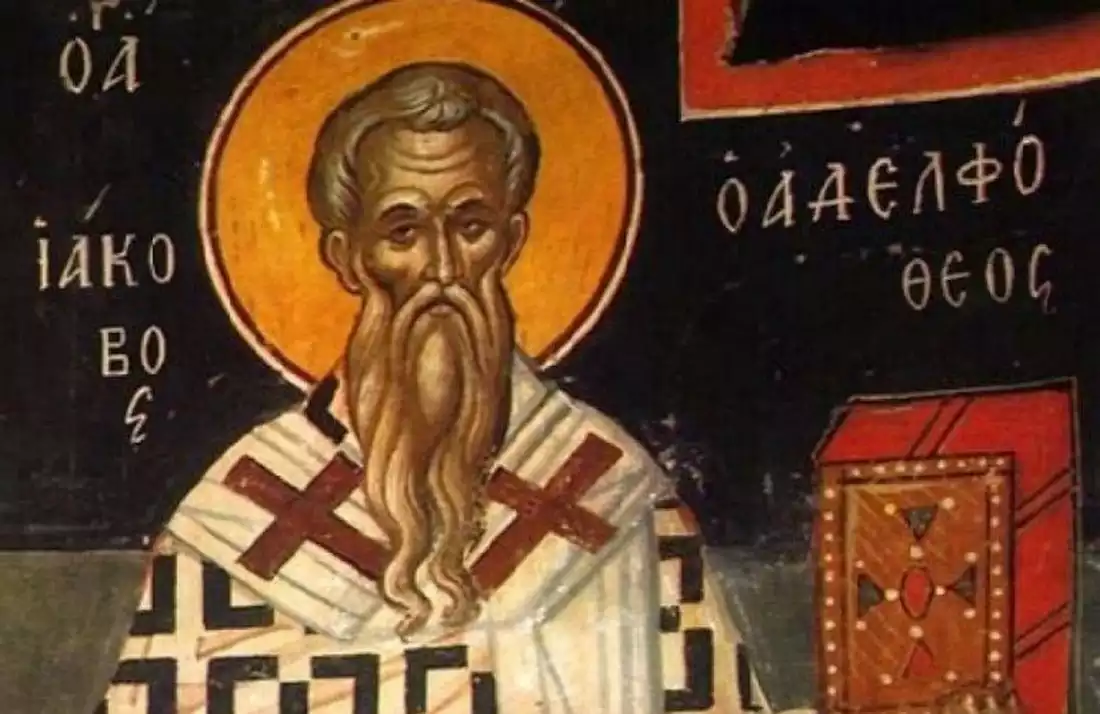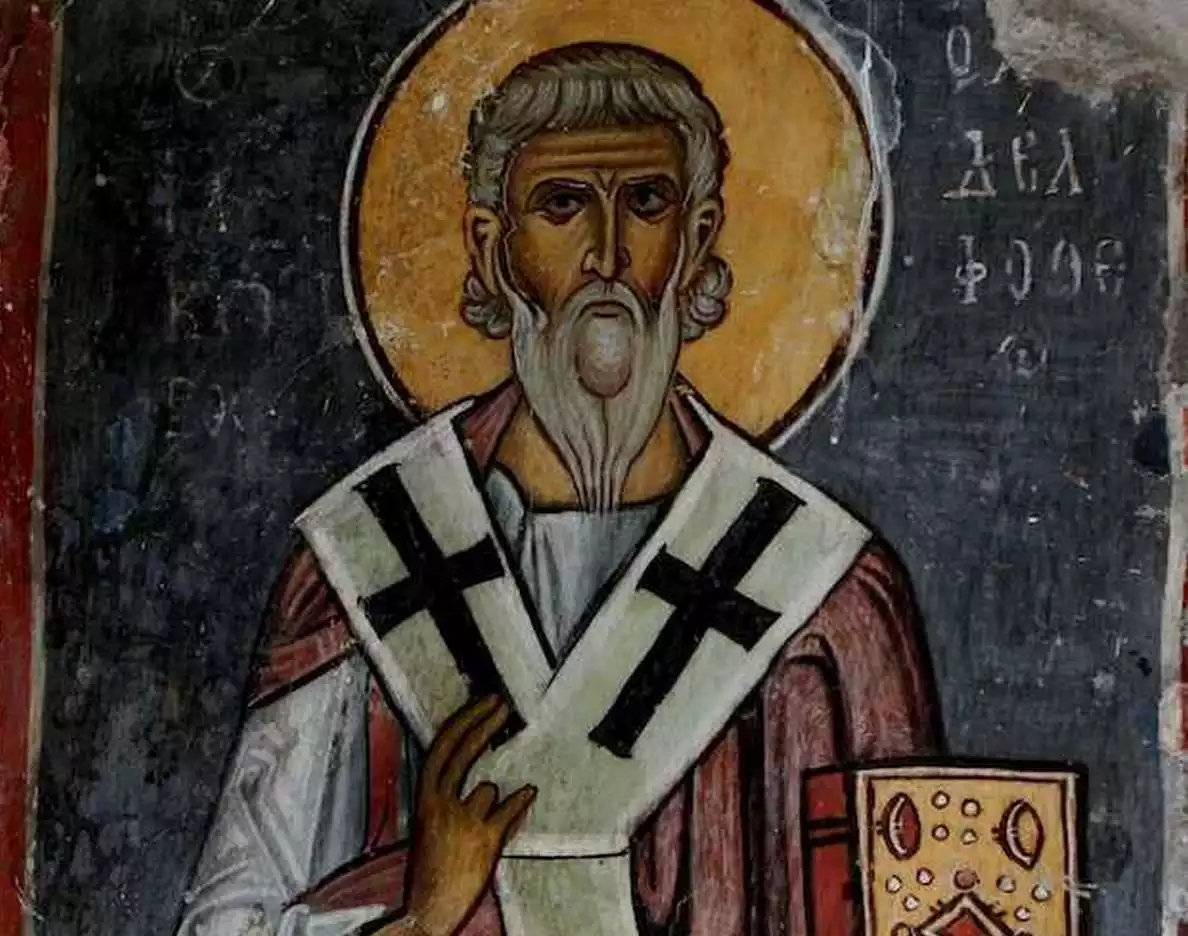
Saint James, known also as James the Apostle, was a pivotal figure in the early Christian Church. Born in the first century AD, he is traditionally believed to have died as a martyr in 44 AD. Renowned as one of the Twelve Apostles of Jesus Christ, Saint James’s life and works hold a significant place in Christian history. His legacy, deeply enshrined in religious texts and Christian tradition, continues to influence Christian theology and practice.

Early Life and Calling
Saint James, son of Zebedee and Salome, was a Galilean fisherman before heeding the call of Jesus Christ. His life took a transformative turn upon encountering Jesus, leading him to become one of the esteemed Twelve Apostles. James, alongside his brother John, earned the epithet ‘Sons of Thunder’, a testament to their fervent faith and spirited character. This period marked a crucial phase in his life, laying the foundations for his later works and influence.
His early experiences with Jesus, from witnessing the Transfiguration to being present in critical moments of Jesus’ ministry, shaped James’s understanding and interpretation of Christ’s teachings. These experiences were instrumental in forging his identity and role within the nascent Christian community. His close association with Jesus Christ not only augmented his spiritual insight but also prepared him for the challenges and responsibilities that lay ahead in his apostolic mission.
Ministry and Apostolic Works
Saint James’s apostolic journey was marked by passionate preaching, teaching, and a profound commitment to spreading the message of Jesus Christ. His ministry extended beyond the confines of Judea, venturing into diverse regions, possibly as far as Spain, according to certain Christian traditions. His dedication to evangelism played a pivotal role in the expansion of early Christianity.
His approach to ministry was characterized by a deep understanding of the cultural and religious contexts of the regions he evangelized. This nuanced approach enabled him to connect effectively with diverse communities, fostering the growth of early Christian congregations. Saint James’s leadership and guidance were vital in addressing the spiritual and doctrinal challenges faced by the early Church.
His contributions to the development of Christian thought and practice were significant. Through his teachings, he emphasized the importance of faith manifested through works, a theme echoed in the Epistle of James. His influence extended beyond his lifetime, leaving an indelible mark on Christian theology and ecclesiastical traditions. His works and teachings continued to resonate, shaping the course of Christian history and thought.
Saint James’s apostolic endeavors were not without challenges. He faced opposition and persecution, ultimately leading to his martyrdom. His martyrdom, as recorded in the Acts of the Apostles, is a testament to his unwavering faith and commitment to his mission. His legacy as an Apostle and martyr continues to inspire Christians worldwide, serving as a beacon of faith, courage, and devotion.

Persecution and Martyrdom
Saint James, a prominent figure in the early Christian Church, faced intense persecution for his unwavering dedication to spreading the teachings of Jesus Christ. His bold proclamation of the Christian faith in a largely non-Christian world often put him at odds with both religious and political authorities. His martyrdom, as detailed in the Acts of the Apostles, marked him as the first Apostle to be martyred, a profound testament to his faith and dedication.
James’s martyrdom had a significant impact on the early Christian community, serving as a powerful example of faith and sacrifice. His death underscored the reality of persecution faced by early Christians and galvanized the Church’s resolve to continue spreading the Gospel. The legacy of his martyrdom continues to inspire Christians, embodying the virtues of courage, faithfulness, and steadfastness in the face of adversity.
Legacy and Veneration
The legacy of Saint James extends far beyond his earthly life and martyrdom. Over the centuries, he has been venerated as a patron saint in various Christian traditions. His influence is particularly notable in Spain, where he is revered as Santiago, with the legendary Camino de Santiago pilgrimage route dedicated to his memory. This pilgrimage, traversing across Spain to the Cathedral of Santiago de Compostela, is a testament to his enduring legacy and the deep devotion he inspires.
Saint James’s impact is also evident in the liturgical celebrations and artistic representations dedicated to him. He is frequently depicted in Christian art, symbolizing his prominent role in the Church’s history. The veneration of Saint James across different cultures and eras reflects his significant role in shaping Christian thought and practice. His teachings, martyrdom, and legacy continue to resonate, enriching the spiritual life of countless believers.
Saint James the Apostle, through his life, ministry, and martyrdom, left an indelible mark on the Christian faith. His story, woven into the fabric of Christian history, remains a powerful source of inspiration. His legacy continues to guide and influence believers, exemplifying the virtues of faith, courage, and commitment to the Gospel.
Feast Day: October 23
References
- Eusebius of Caesarea. “Church History.” Cambridge University Press, 2012.
- Fitzmyer, Joseph A. “The Acts of the Apostles: A New Translation with Introduction and Commentary.” Yale University Press, 1998.
- James, Montague Rhodes. “The Apocryphal New Testament.” Clarendon Press, 1924.
